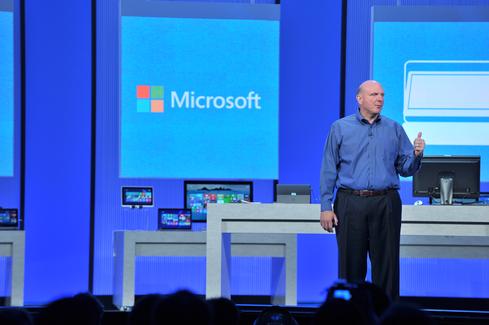7 Mistakes Microsoft Made In 2013





This was a pretty good year for Microsoft with some big customer wins. But these seven missteps were just dumb.

Hey, Nobody's Perfect If you're looking in Microsoft's rear mirror, you could describe what you see in a whole bunch of ways. One adjective you probably won't use for the company's 2013 is 'quiet.'
It was a busy year even by Microsoft's standards. From Windows 8.1 to Xbox One to the Nokia device business acquisition to Office 365's continued growth to Steve Ballmer's (somewhat) surprising retirement announcement -- not to mention that whole NSA spying thing -- it seemed each week brought a new wave of headlines out of Redmond.
There was good news. Office 365 had some big customer wins and seemed to solidify the future of the Office franchise. Xbox One appears to be a hit. The Azure cloud is expanding globally. The Surface 2 and Surface 2 Pro are sold out, and even if there's some inventory management magic behind the demand, it still makes a good headline for the Monday morning PR roundup. So 2013 wasn't a lousy year for Microsoft.
But, hey, let's face it. It's more fun to pick apart a company's shakier decisions and flat-out mistakes. So that's what we're here to do.
'Frustration' might be a more apt term than 'mistake' in some cases here -- as in frustration with Microsoft's apparent belief that a Microsoft customer can't also be a Google or Apple customer. Google doesn't mind acknowledging that the competition exists. 'In the next couple of weeks, you'll be able to download a new version of the Google Search app on iPhone and iPad,' the company wrote in a recent blog post touting the company's Hummingbird update. 'So if you tell your Nexus 7, 'OK, Google. Remind me to buy olive oil at Safeway,' when you walk into the store with your iPhone, you'll get a reminder.' See that? Dogs and cats, living together. (No human sacrifice or mass hysteria, either.)
A related frustration is the 2013 marketing push that insists the world craves 'one experience' for everything we do, as if we were living in a dystopian novel. And while we're on the topic of frustrations, Microsoft needs to stop communicating with consumers and businesses as if they were investors and board members. 'Devices and services' might perfectly describe Microsoft's vision of its future self, but when was the last time anyone said, 'I think I'm going to go buy some devices and services today'? Apple, by comparison, doesn't sell devices and services. It sells iPhones and music (and other stuff).
Sometimes frustrations morph into tangible mistakes -- pretending, for example, that Office devotees don't use iPads, a head-in-sand strategy if there ever was one. As our own Michael Endler reported in April:
Forrester analyst Dave Johnson told InformationWeek in February that Microsoft could reap greater returns if it stops protecting Windows and starts treating Office as a multi-OS platform. In an interview conducted just before the Outlook RT rumors hit, Gartner analyst Carolina Milanesi offered similar sentiments, saying that because Office for iOS represents such a massive opportunity, it is 'only a question of time' until Redmond finally makes its move.
The time for that move was 2013. Alas, it didn't happen, so it's on our list.
Not on our list: There's a whole lot of wait-and-see stuff happening in the Microsoft universe at the moment, from the ongoing search for Ballmer's successor to the Nokia acquisition to the next evolutions of Windows 8.x. It's too early to pass sound judgment with so much to be determined on those fronts -- the CEO seat perhaps most of all. We'll have to revisit those at the end of 2014.
In the meantime, click the image above to dive into a slideshow on last year's mistakes. Got your own bones to pick with Microsoft's moves in 2013? Let's hear them in the comments.
Kevin Casey is a writer based in North Carolina who covers technology affecting small and midsized businesses.

Comments
Post a Comment